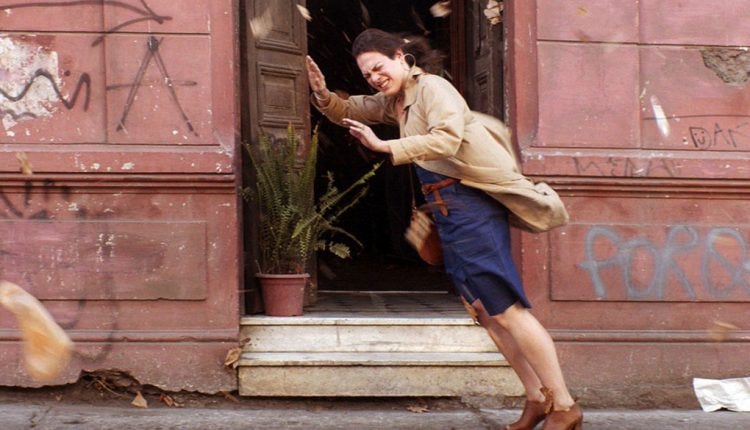To celebrate Pride Month, every week of June Jorge has been highlighting the script of a movie that focuses on a different letter of the LGBT acronym. For “T”, the last installment in this miniseries, he looks at the most recent Oscar winner for Best Foreign Language Film.

The LGBT experience encompasses all types of people, genders, nationalities, economic statuses, and every intersectionality in between. It doesn’t look one single way, and it certainly doesn’t feel like one, either. As the canon of queer cinema begins to expand beyond a couple of points of view, the ways in which film reflects this experience are becoming as diverse and colorful as the community itself.
So let’s take a look at A Fantastic Woman, the Oscar-winning Chilean film about a trans woman dealing with the loss of her partner, and the overwhelming grief and pressure that come with it. While it is a sobering portrait of a trans experience, it also effectively uses surreal imagery to portray the particular moments that Marina is going through. We'll dive into two of them...
A Fantastic Woman
Written by: Sebastián Lelio and Gonzalo Maza
[You can read the whole script here. I will be talking about this scene.]
Being part of an ostracized community can sometimes feel as if you are swimming against the current; as if the entire society is pushing against you. As Marina (a pitch-perfect Daniela Vega) navigates the personal and bureaucratic waters of losing her partner and dealing with his estranged family, she feels the weight of all this. Everyone treats her with contempt, disrespect, or full-on hatred. She just wants to exist, and has to push against being allowed to do even that.
As she walks through the street after a long day of defeated fighting and humiliations, the wind starts to blow hard. “As the seconds passes, the wind grows stronger and carries all kinds of dust.” She’s walking the other direction; the wind blows against her. It pushes her up until the point that she cannot continue to walk.
The script uses this tiny sequence (it takes perhaps less than a fifth of the page) to create one of the most striking visual metaphors nor just for this film, but perhaps queer cinema: a woman that just wants to cross a street, but the strength of an opposing force won’t let her. No matter how much she fights, it will stop her.

The other sequence that uses surrealism and hints of magical realism (in the best Latin American tradition) happens later in the movie, as Marina wants to get rid of the grief that has been consuming her. She walks into a dance club, and after a few moments is dancing with a stranger. Or, as the script puts it, “exorcizing” with him, freeing herself of her demons through the primitive and cleansing ritual of dance.

She gives him oral sex. The people around them are in a frenzy. Then she sees her partner Orlando by the bar, looking at her. Is he condemning her for her acts? Or allowing her to expiate her burdens? He keeps staring at her as the crowd slowly engulfs her.
The sequence then turns into a fully choreographed musical number, in which Marina and the club goers dance as they are taken over by the moment, by the spontaneity, raw emotions, and thrill of just being allowed to freely move and exist. She wears glitter; then she ascends.

***

It is worth noting that the script that I’m using for this article is the English translation. It would be interesting to take a look at the original iteration of the script and see the exact kind of language and description it uses to covey these images, as a lot of sentiment and intention can get lost in translation. But that’s a different piece…
A Fantastic Woman is not only a, well, fantastic film because of its incredibly specific and raw portrayal of a trans woman, but because it uses imagery and visual metaphors to take this portrayal even deeper. It’s a cliché at this point to say that specificity breeds universality, but in a world where LGBT experiences are so often lumped together as one broad account, movies that tell specific stories makes us all feel closer.
Happy Pride!